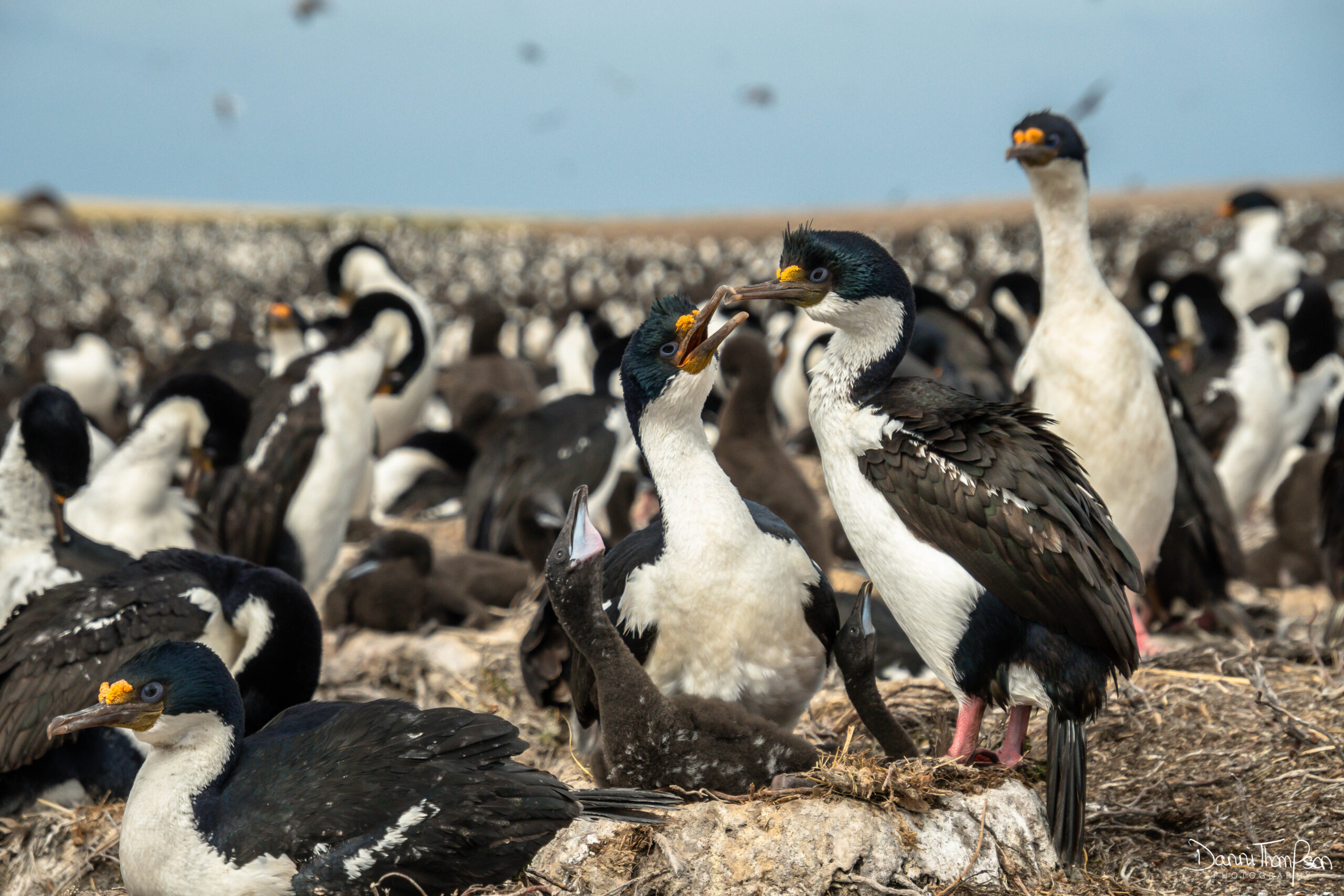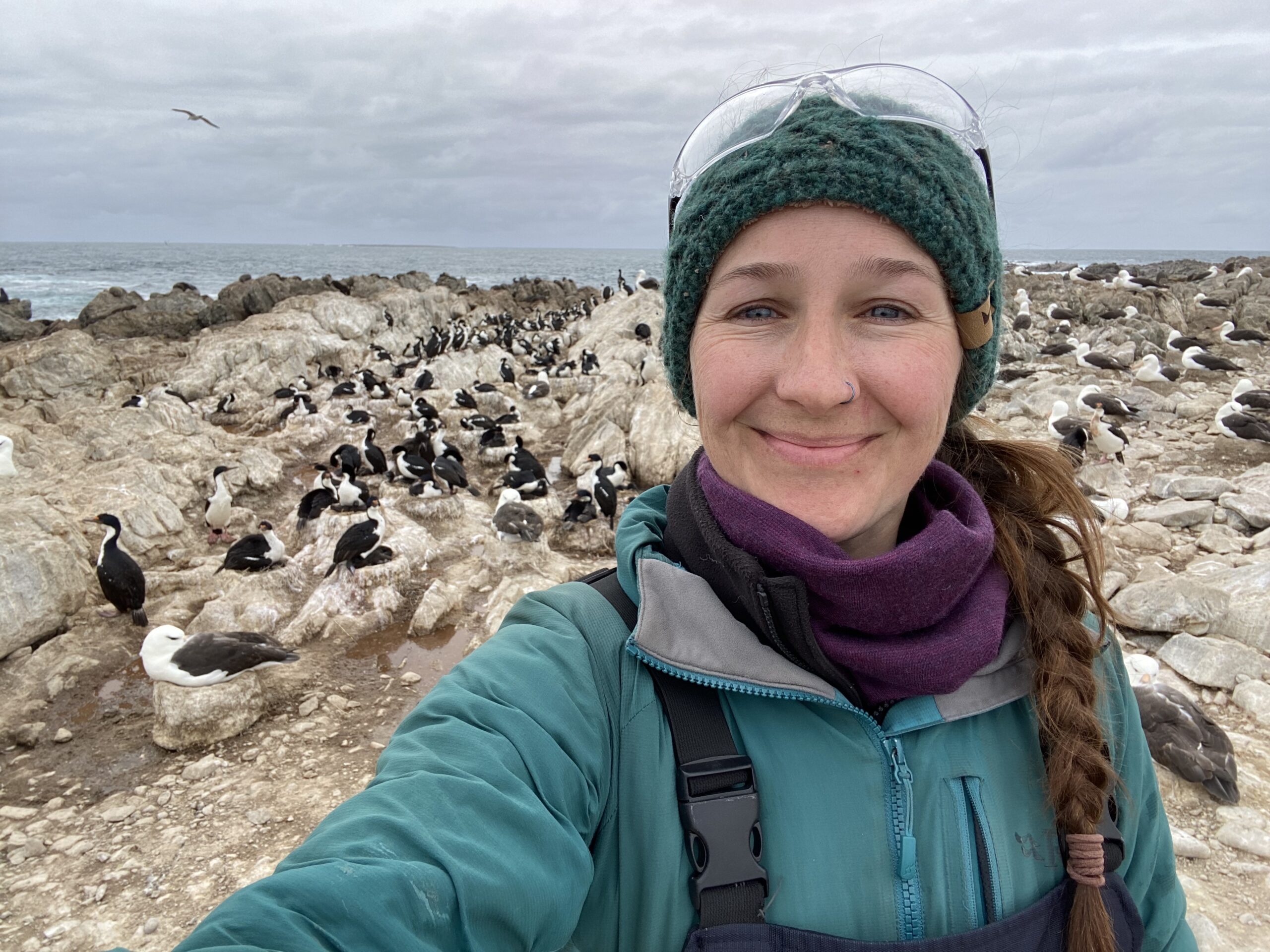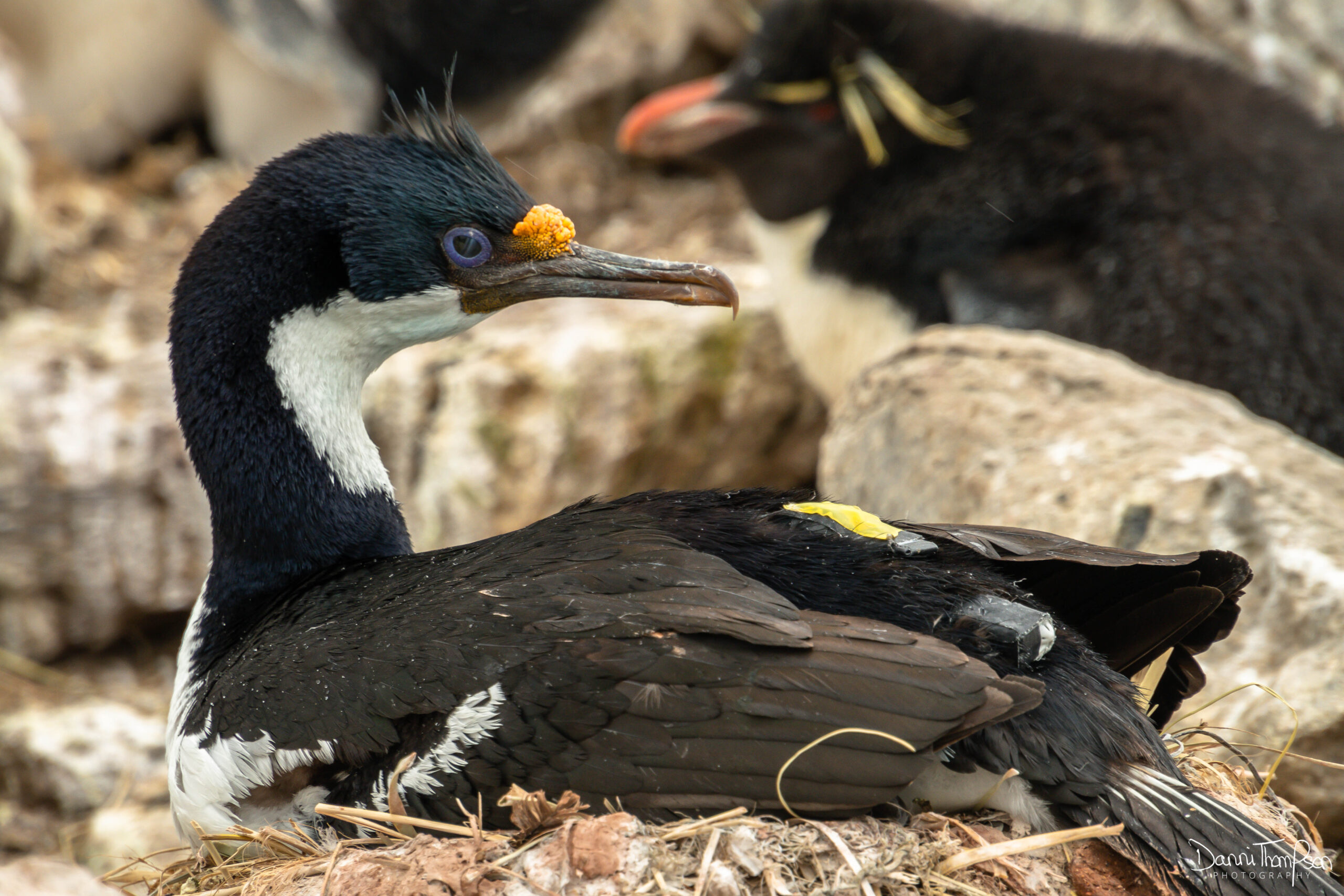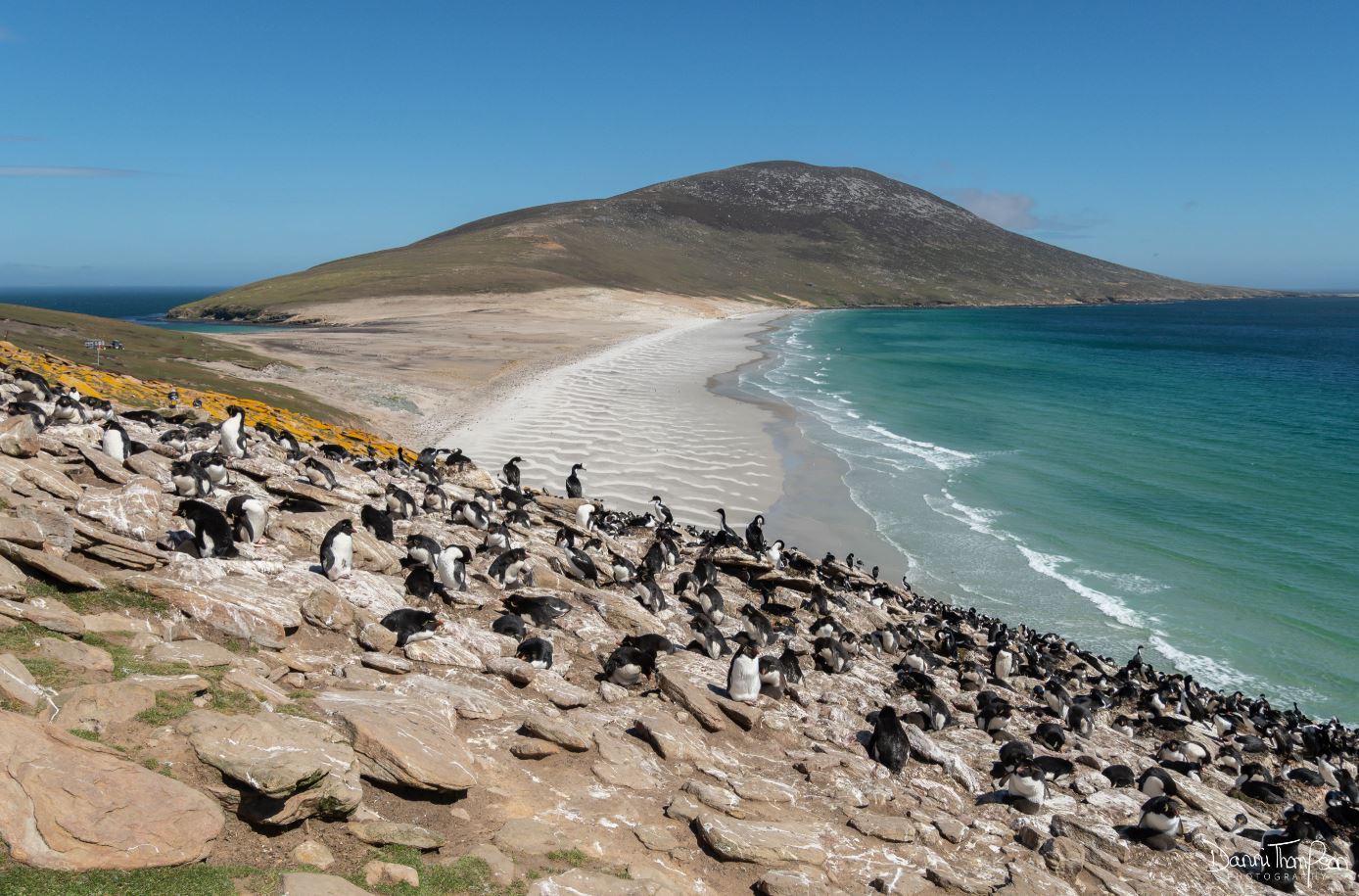


Project overview
Individual variation is key to our understanding of ecological and evolutionary processes, with important implications for species conservation. In particular, the relevance and extent of consistent behavioural differences (‘personality’), and the degree of plasticity or specialisation shown by individuals, has important consequences for a range of key traits including survival and reproductive success. These translate into population level impacts because they influence the susceptibility of individuals to anthropogenic threats.
Using biologging techniques and diet analysis, this research will study the poorly known Falkland Islands shag (Leucocarbo atriceps albiventer) to investigate how intraspecific competition and environmental variation influence individual specialisation in foraging behaviours. As a widely distributed resident seabird, the Falklands shag offers a model system to not only follow individuals from colonies of varying size and with access to different oceanographic environments but to examine these contrasts year-round. Such characteristics make this species an excellent model to run a ‘natural experiment’ across gradients of competition (colony size) and environmental conditions (inshore and offshore colonies and seasonal variation in productivity and daylength) through which to examine drivers of individual variation in foraging/behavioural specialization.
Project Objectives




